It's the end of the World Cup as we know it: Expansion to 48 ruins FIFA's showpiece

I want to keep an open mind, I really do. Change is inevitable in life, and it isn’t always bad.
But I’m worried that January 10, 2017, will be seen as the day FIFA ruined the World Cup.
On Tuesday, the FIFA Council made it official, unanimously approving an expansion of the men’s World Cup field. Starting in 2026, the field will increase from 32 to 48 teams. There will be 16 groups of 3 teams, with the top two finishers in each group advancing to a 32-team knockout stage.
The number of World Cup bids per continent has yet to be finalized, but reports suggest it could look like this:
UEFA | 16 (13 currently) |
|---|---|
CAF | 9 (5) |
AFC | 8.5 (4.5) |
CONMEBOL | 6 (4.5) |
CONCACAF | 6.5 (3.5) |
Oceania | 1 (0.5) |
Host Country | 1 or more if co-hosted (1) |
What’s good about the expansion? What’s bad? Let’s break it down:
The Pros
• If you’re the United States or Mexico and purely looking out for your self-interest, an expanded World Cup means it will be almost impossible to miss out on qualifying for the tournament, as Mexico nearly did for 2014 and as the U.S. may be on its way to doing for 2018 after losing its first two games in the CONCACAF Hexagonal.
What’s more, it will be easier to advance to the knockout rounds with two teams in every three-team group advancing to the round of 32 (as opposed to two of four teams in each group advancing to a round of 16). And with more emphasis on the results of one game—in a sport where crazy bounces, fluke goals and bad officiating often decide games—it could also be easier for the U.S. or Mexico to advance deeper in the knockout rounds against easier teams than they faced before.
The best World Cup format–that FIFA would never consider
• If you’re a country that has never made it to the World Cup before—and there are plenty of nations in this group—your chances of qualifying just increased immensely. That is no small thing as the world’s game becomes increasingly global. In general, inclusion is a better thing than exclusion.
• Despite having a bigger tournament, it won’t take any more days to complete. The 48-team World Cup in 2026 will last 32 days, just as many as the 32 days it will take with 32 teams at Russia 2018. The tournament winner will still play seven games, no more than is currently the case, so I don’t totally understand the European Clubs Association’s opposition argument saying that the new format will put more wear and tear on players.
But then there’s the other category, which is a big one:
The Cons
• Three-team groups are a joke. Why was Euro 2016 so unsatisfying? A big reason was the expanded 24-team field, in which teams that finished third in their four-team groups still advanced to the knockout rounds. Anytime you have more than half the teams advancing to the knockout stage creates a problem, with poorly performing teams being rewarded.
Three-team groups may also incentivize teams to play for 0-0 ties, and they remove the simultaneous final group games, which may incentivize teams to lay down and play for a mutually beneficial result if they happen to be in the final group game. FIFA is considering staging penalty shootouts at the end of any tied group games to help alleviate the problem, but that’s lame and won’t alleviate it entirely.
• Bad games at the World Cup will become more frequent. FIFA’s own research says the quality of World Cup games will suffer in a 48-team tournament. Look for more blowouts between Germany and, say, Curaçao. Look for more small teams to park the bus and hope for a tie. Look for more mutually beneficial snoozers. Some of these games could be brutal. Too much of a good thing can easily become a bad thing. Again: Look at Euro 2016.
GALLERY: Every World Cup winner
World Cup Winners
1930: Uruguay
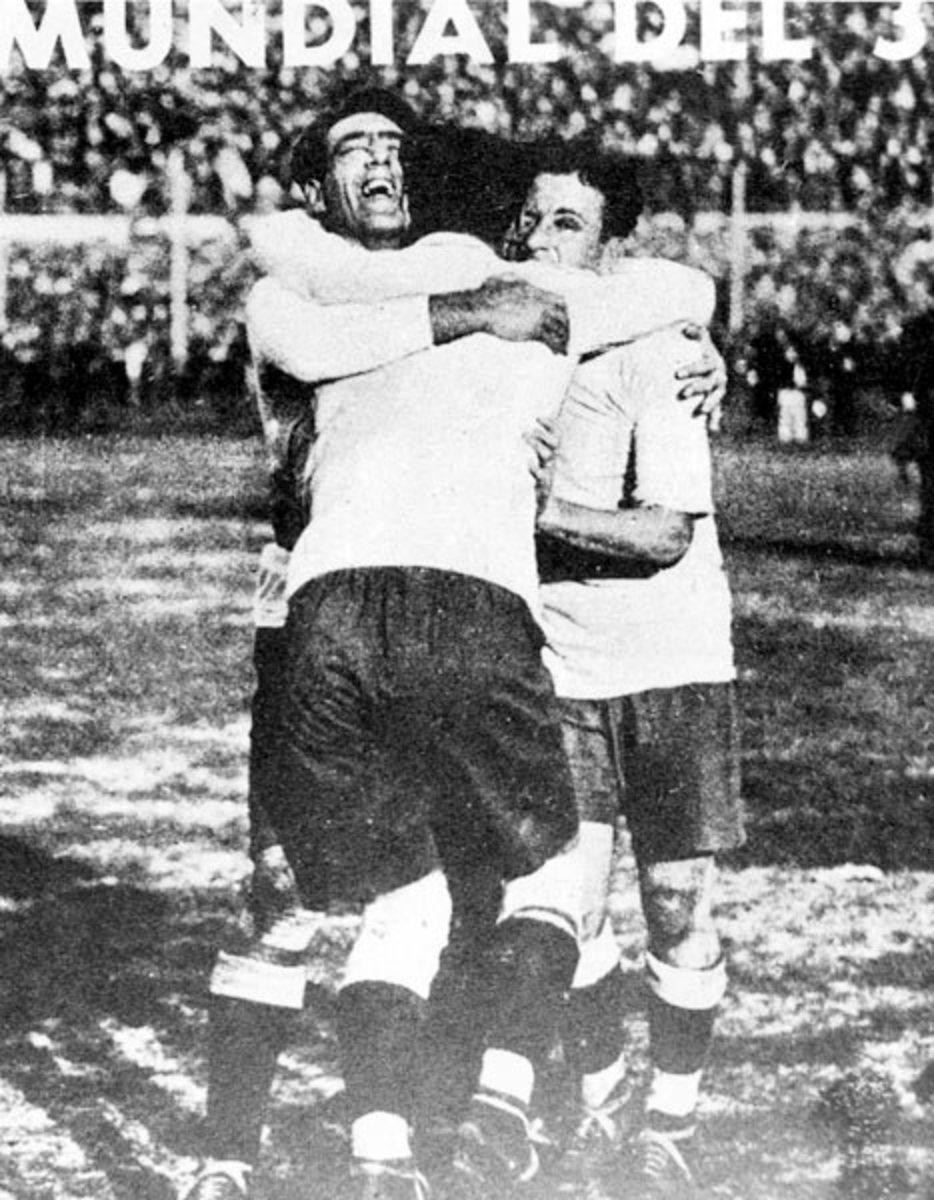
The hosts won the first World Cup, beating Argentina 4-2 in the final. Uruguay's victory in the 13-team tournament was the start of a trend: The host nation has won six of 18 World Cups, and even lesser sides that have hosted usually have exceeded expectations.
1934: Italy
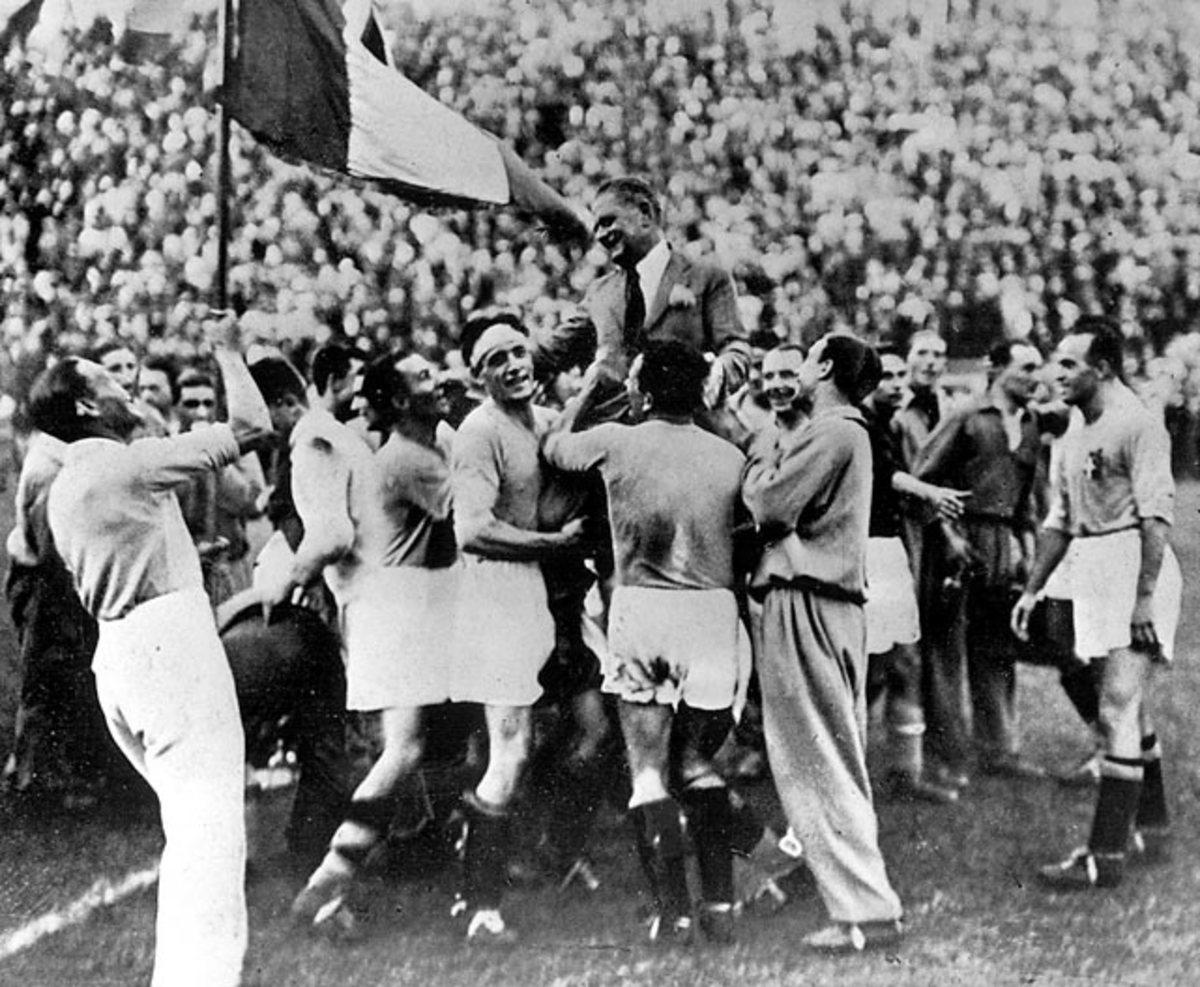
The host nation delivered again as Italy beat Czechoslovakia 2-1 in the final thanks to an extra-time goal from Angelo Schiavo. The Italians had opened the tournament with a 7-1 rout of the United States before beating Spain and Australia en route to the final.
1938: Italy
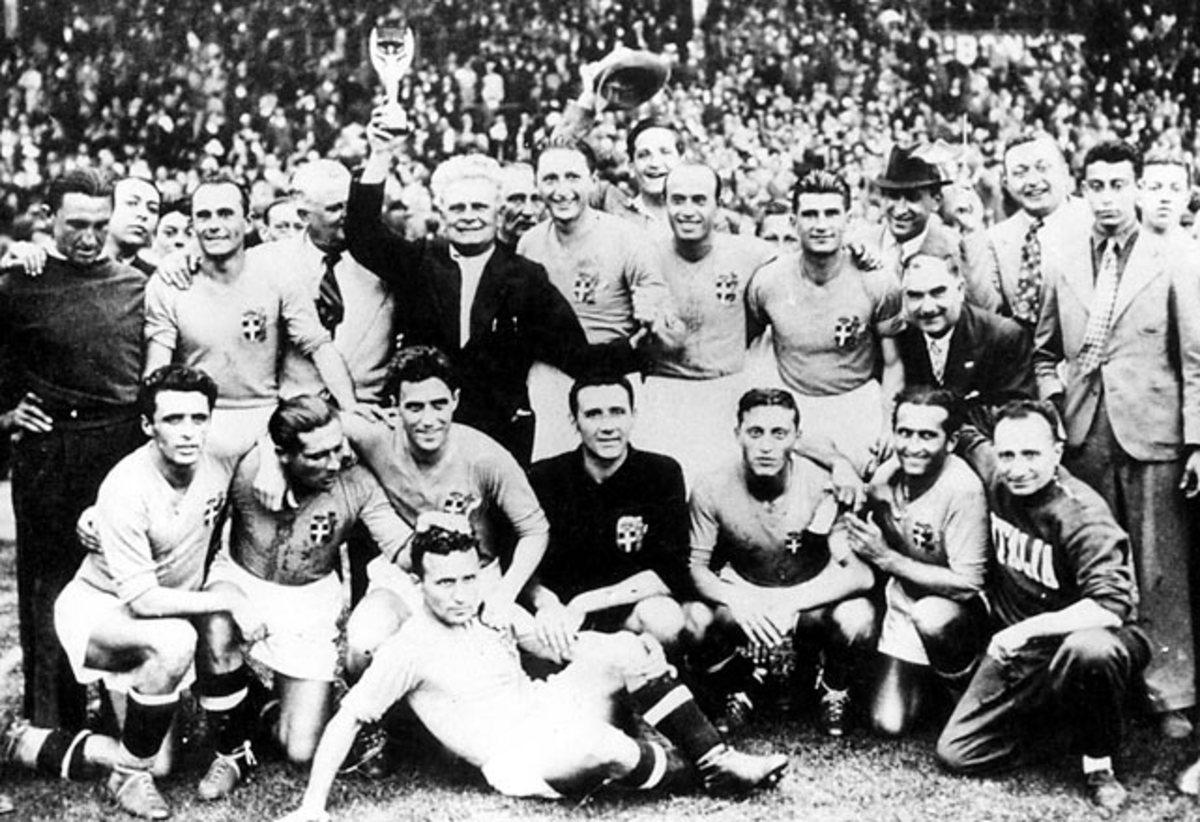
Italy won its second consecutive World Cup behind striker Silvo Piola, who scored twice and set up another goal in a 4-2 victory over Hungary in the final. The tournament included Brazil's epic 6-5 win over Poland in the first round in which Ernest Wilimowski scored four goals in a losing effort and Leonidas countered with a hat trick.
1950: Uruguay
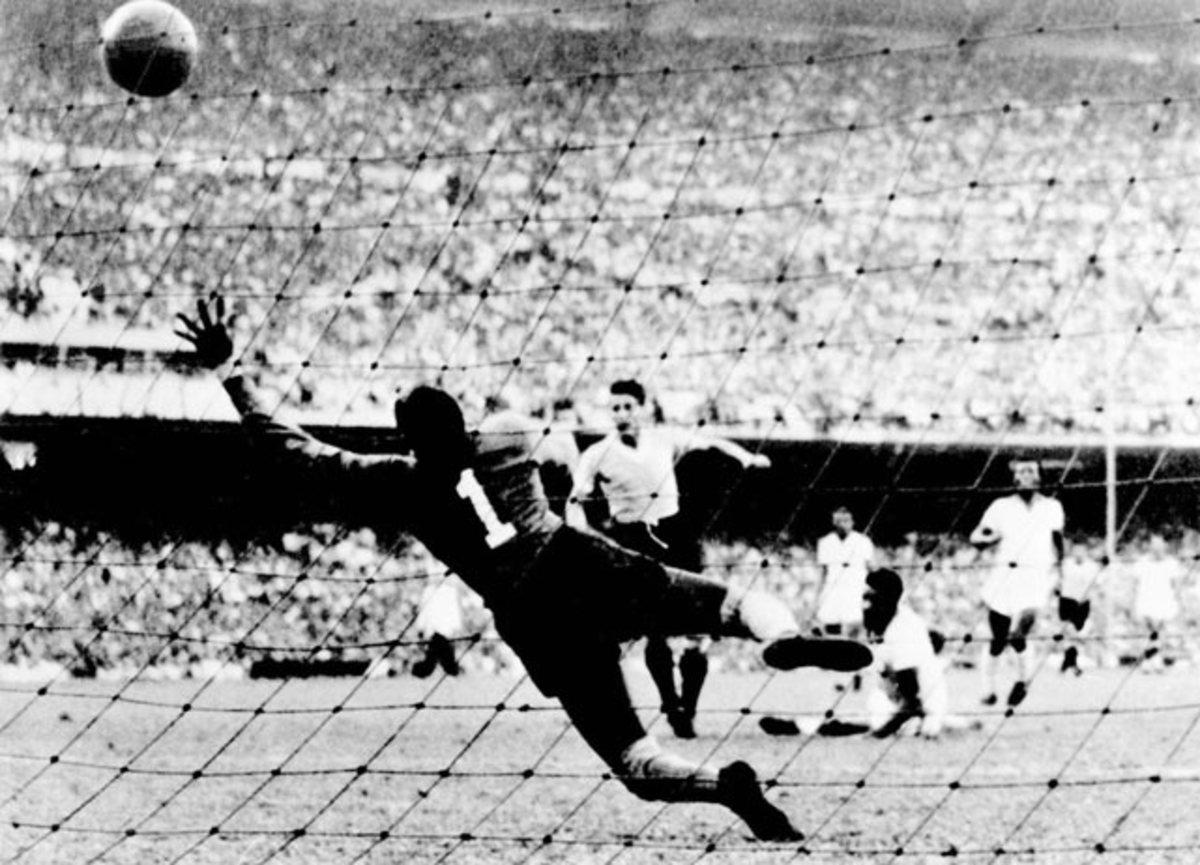
While the United States pulled off the shocker of the competition by beating England, Uruguay joined Italy as two-time World Cup winners. Alcides Ghiggia scored in every game for Uruguay, including the game-winner in the final against host Brazil.
1954: West Germany
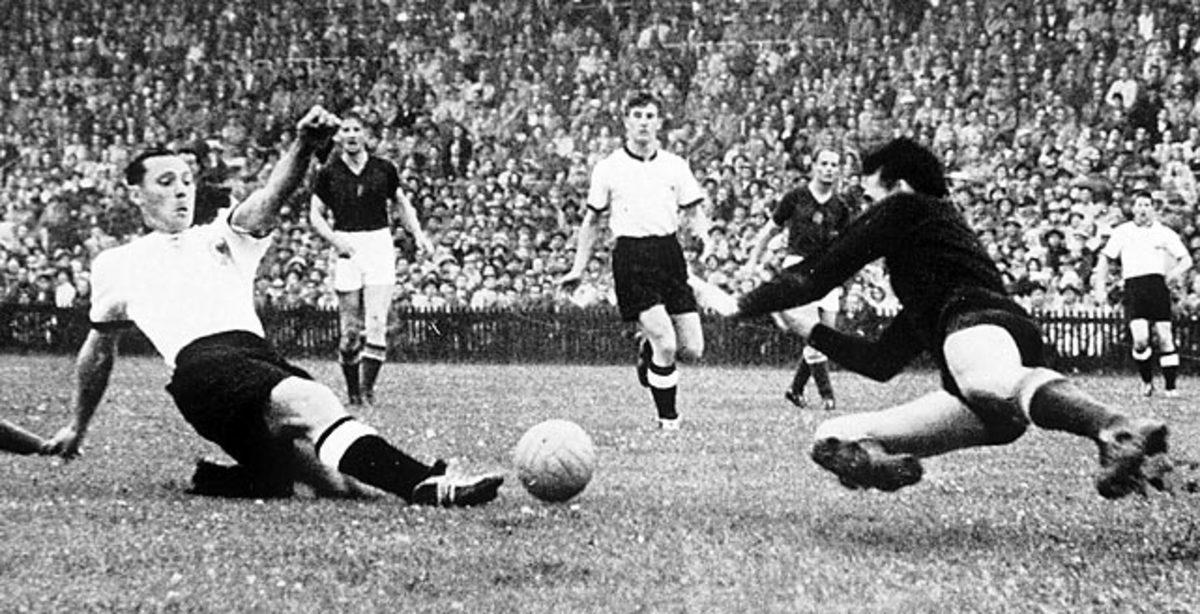
West Germany lost 8-3 to Hungary in the second game of the tournament, but exacted revenge in the final when it overcame an early two-goal deficit to win 3-2. This was the highest-scoring World Cup in history (5.38 goals-per-game average), with Hungary accounting for 26 in five games.
1958: Brazil
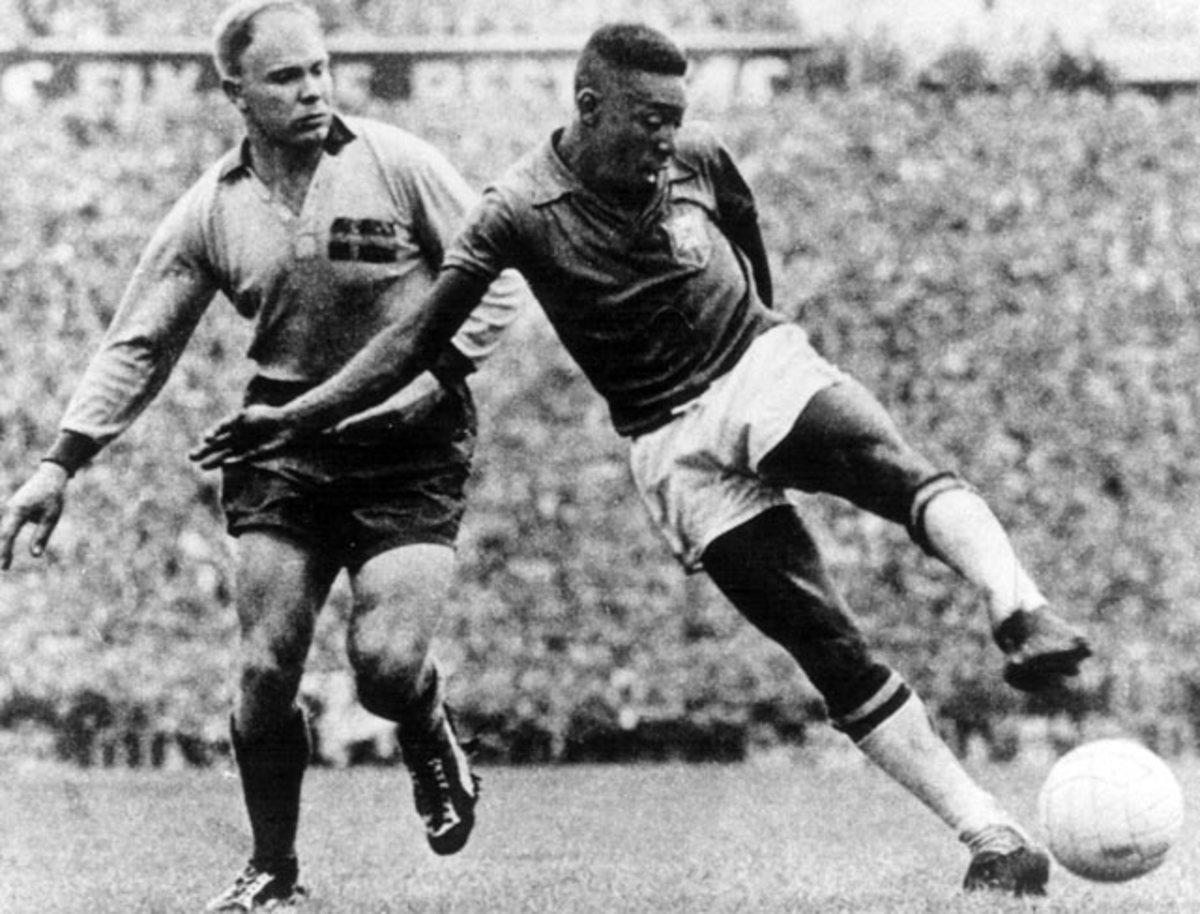
The first internationally televised World Cup gave us Brazil's Samba soccer and 17-year-old sensation Pele, who scored six goals in the tournament. It also provided the first winner outside its home continent, Brazil, which defeated host Sweden 5-2 in the final.
1962: Brazil
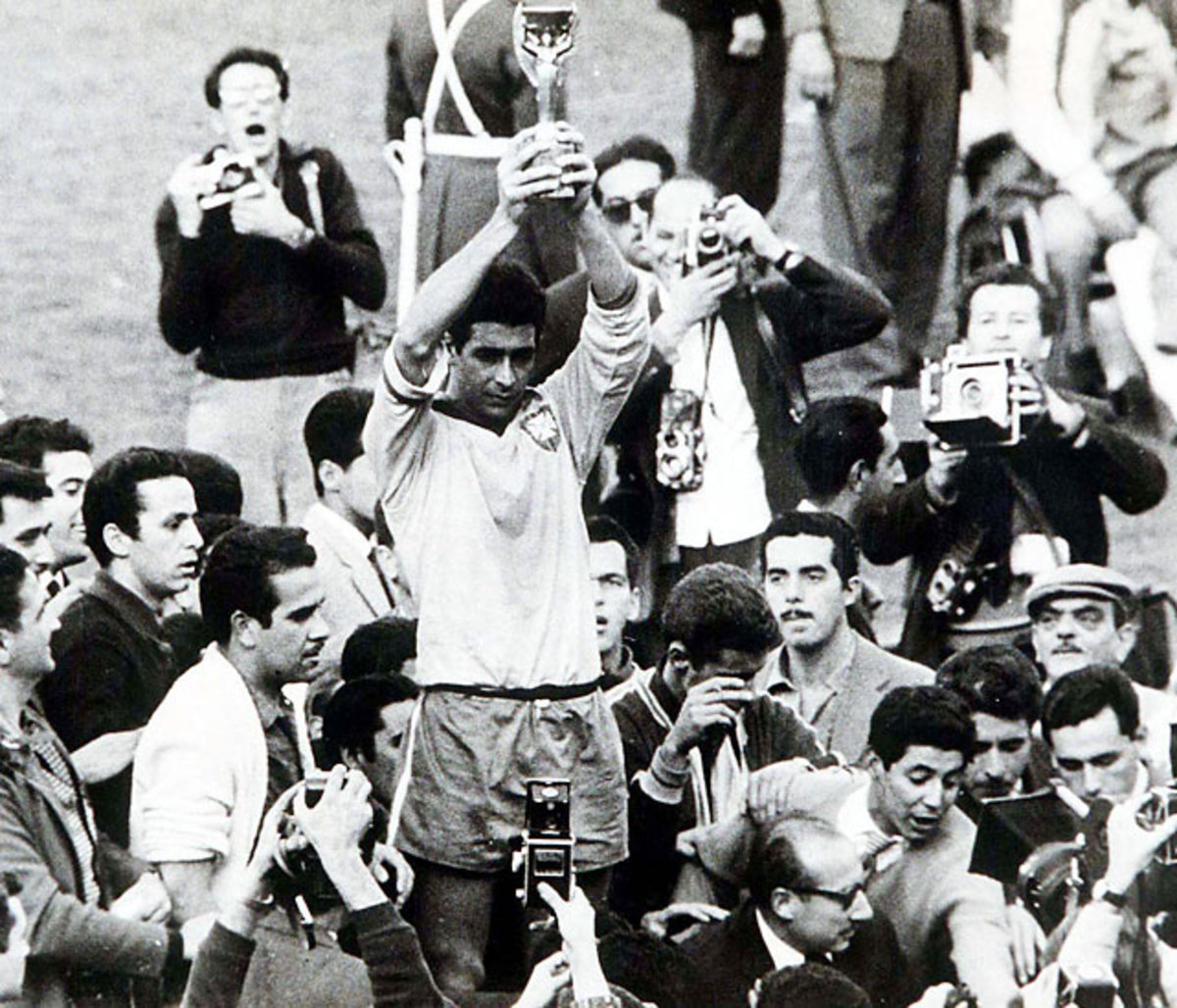
Despite the loss of Pele to injury, the Brazilians looked as dazzling as ever, overwhelming Chile 4-2 in the semifinal. The Czechs put up more of a fight in the final, but were overcome by two second-half goals as the Brazilians repeated as champions.
1966: England
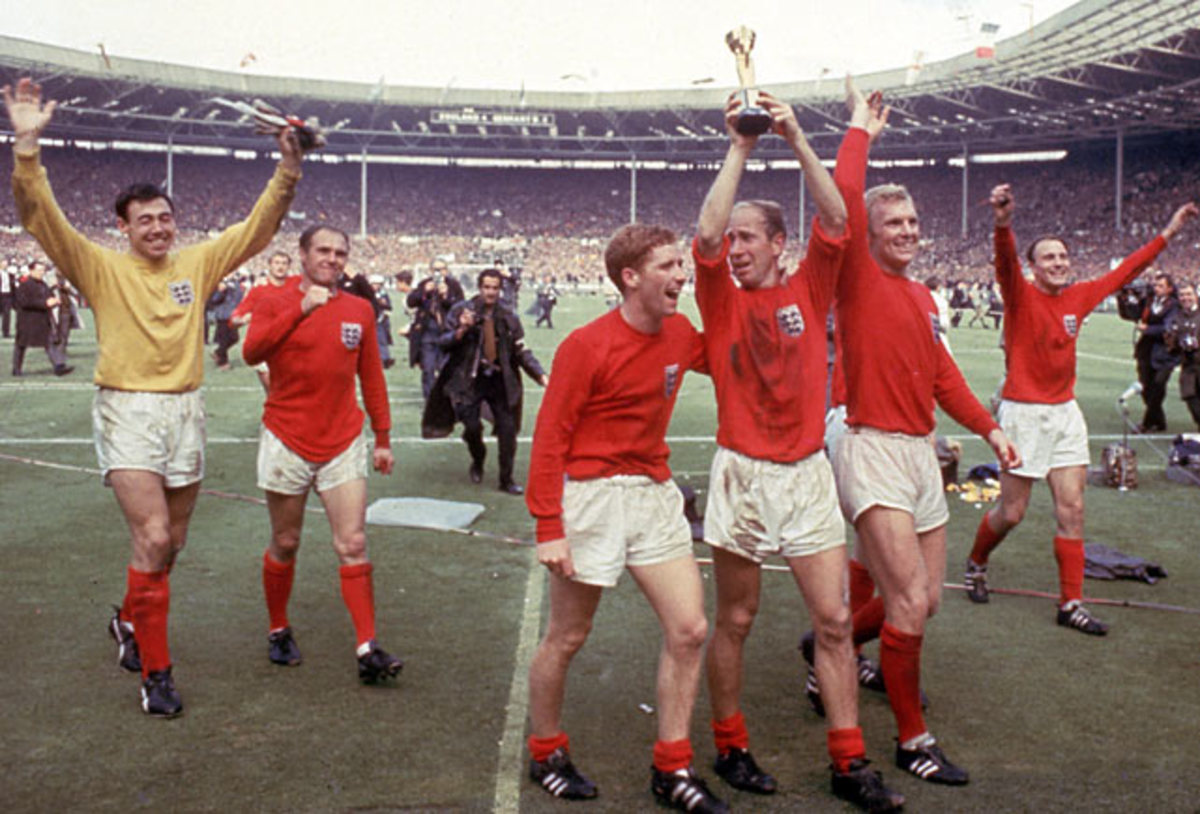
England triumphed on home soil under Alf Ramsey, who'd revolutionized the national team. The 4-2 win over West Germany after extra time in the final remains the defining moment in English soccer, though the containment of Portugal a game earlier was equally decisive.
1970: Brazil

Brazil's free-scoring run through the rounds, a scintillating semifinal between Italy and Germany and Gordon Banks' "save of the century" against Pele in Brazil's classic group victory over England helped make this what is widely viewed as the best World Cup ever. Brazil downed Italy 4-1 in the final.
1974: West Germany
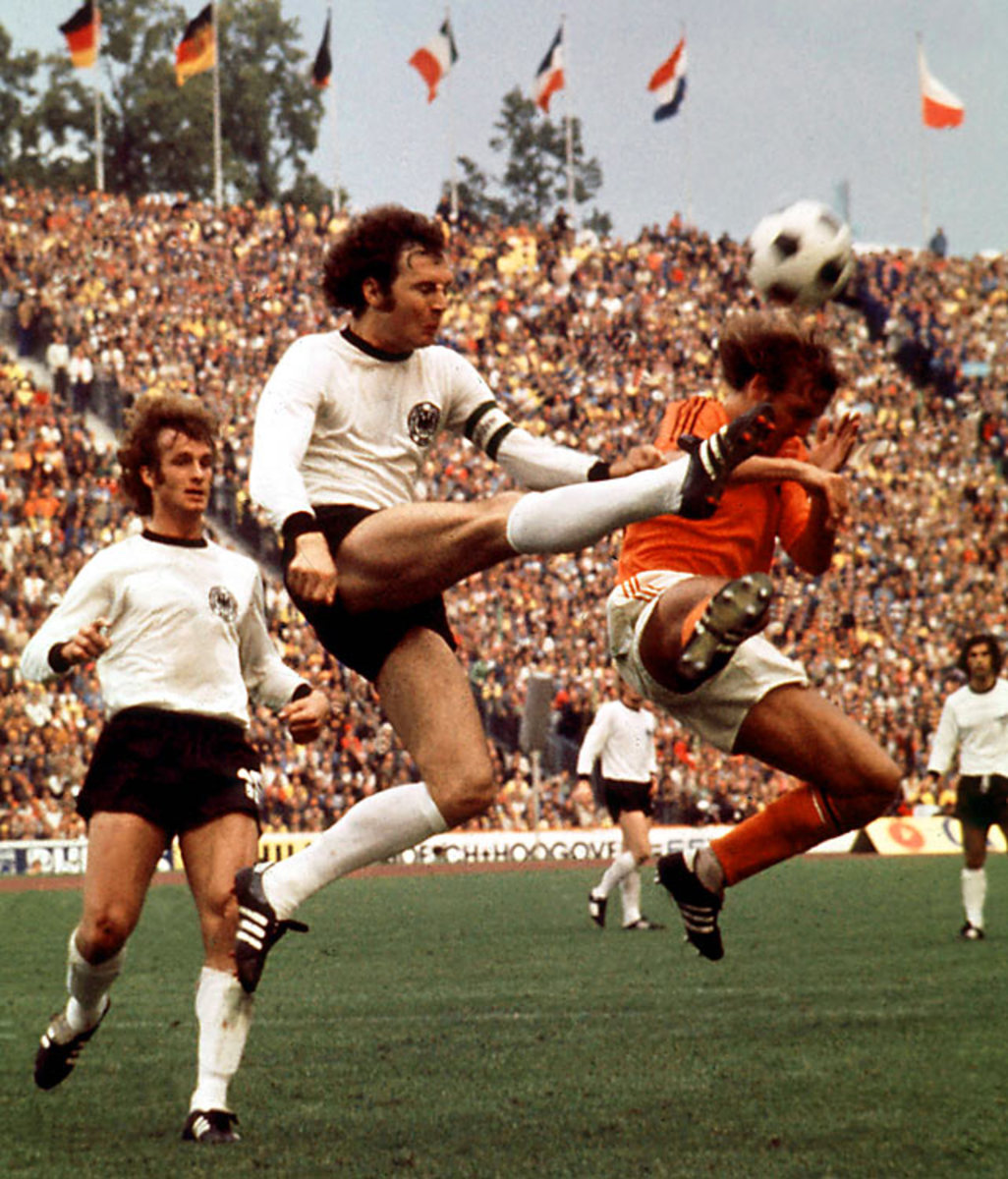
Led by Sepp Maier, Franz Beckenbauer and Gerd Müller, West Germany overcame a classy Dutch side in the final to win the title on home soil.
1978: Argentina
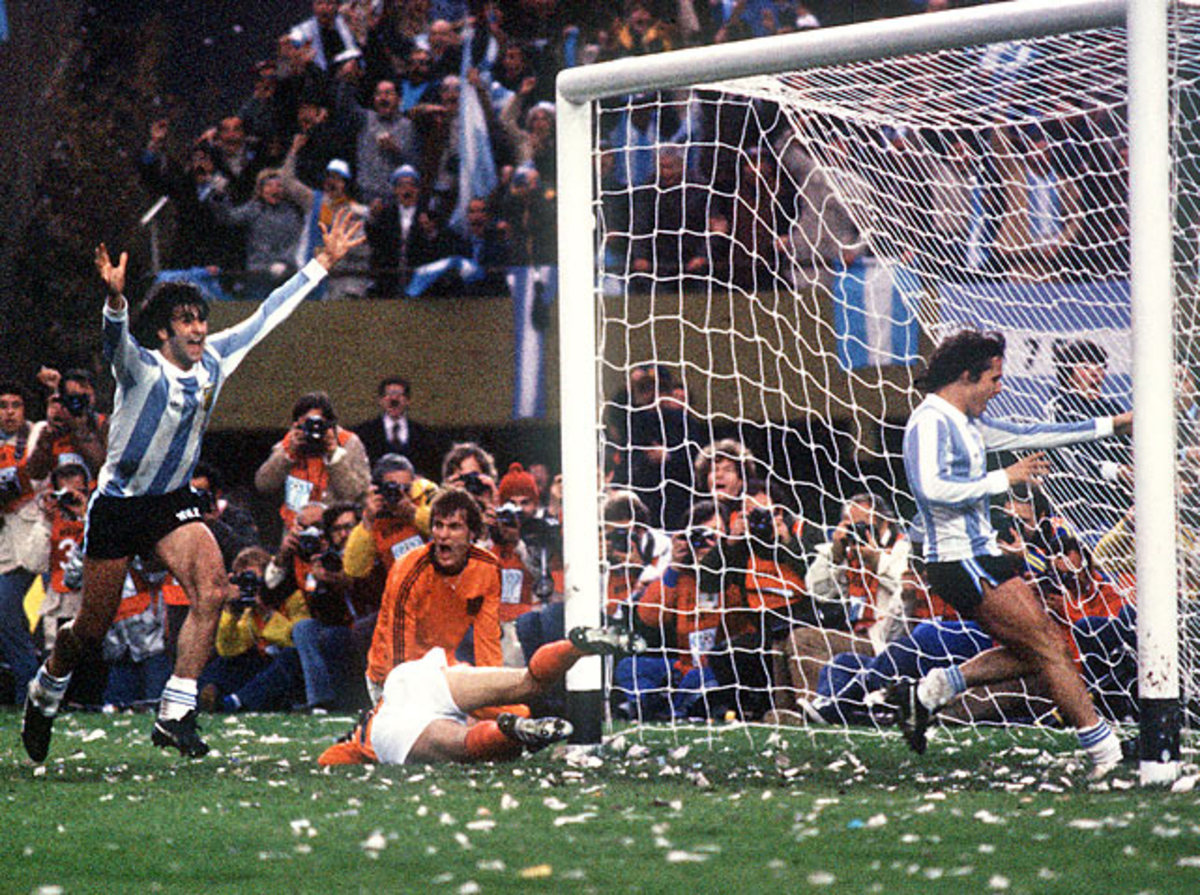
The first World Cup in Argentina ended with a fifth title for a host nation. Mario Kempes won the Golden Boot with six goals, including two (to go with one assist) in Argentina's 3-1 victory over the Netherlands in the final. This was Holland's second consecutive loss in a World Cup final.
1982: Italy
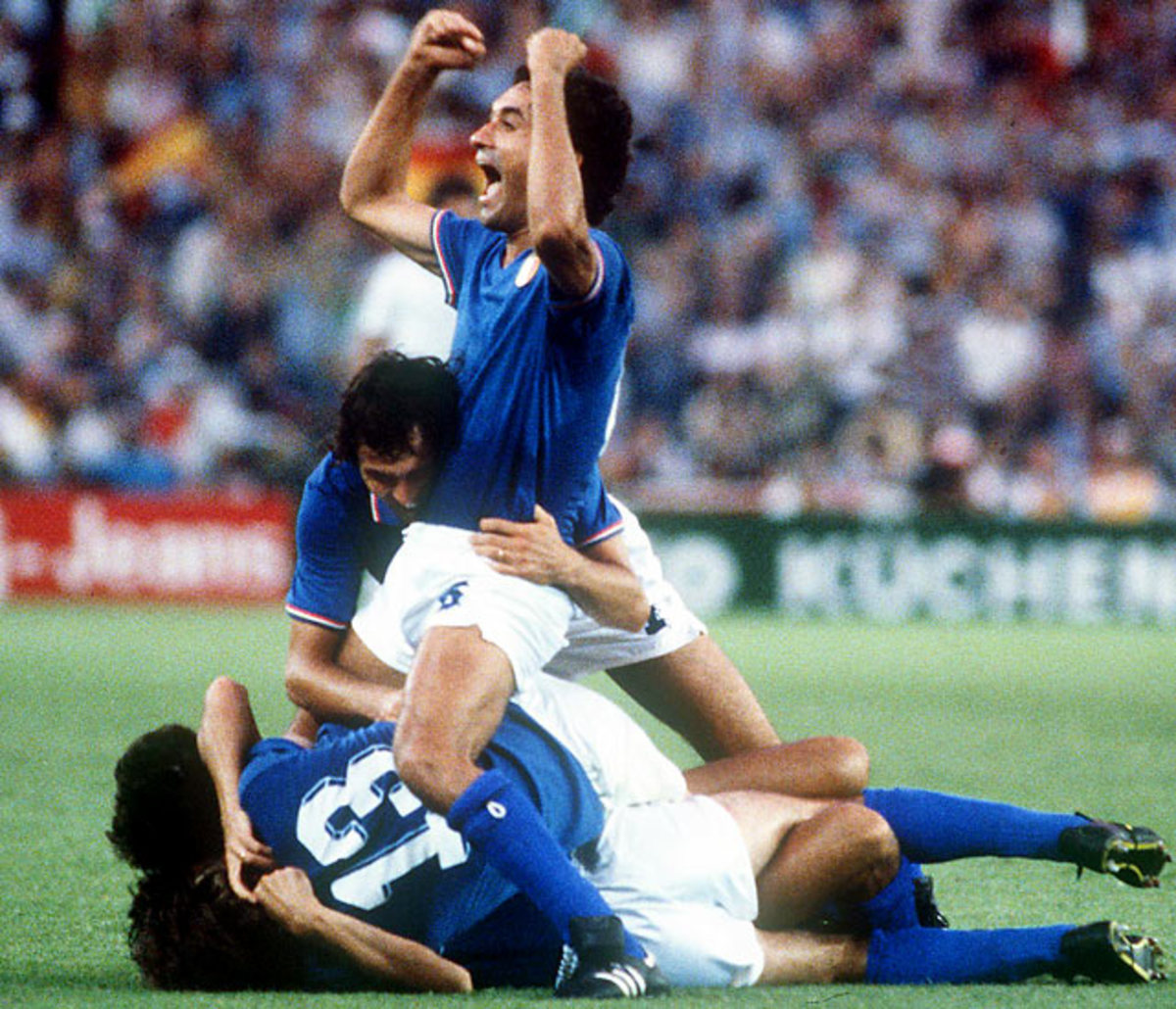
In the first 24-team finals (eight more than in '78), Italy unexpectedly matched Brazil with its third title. West Germany and Brazil were the favorites and both won every game in qualifying, but Italy, led by Paolo Rossi, who had recently returned from a match-fixing suspension, knocked off both en route to victory.
1986: Argentina
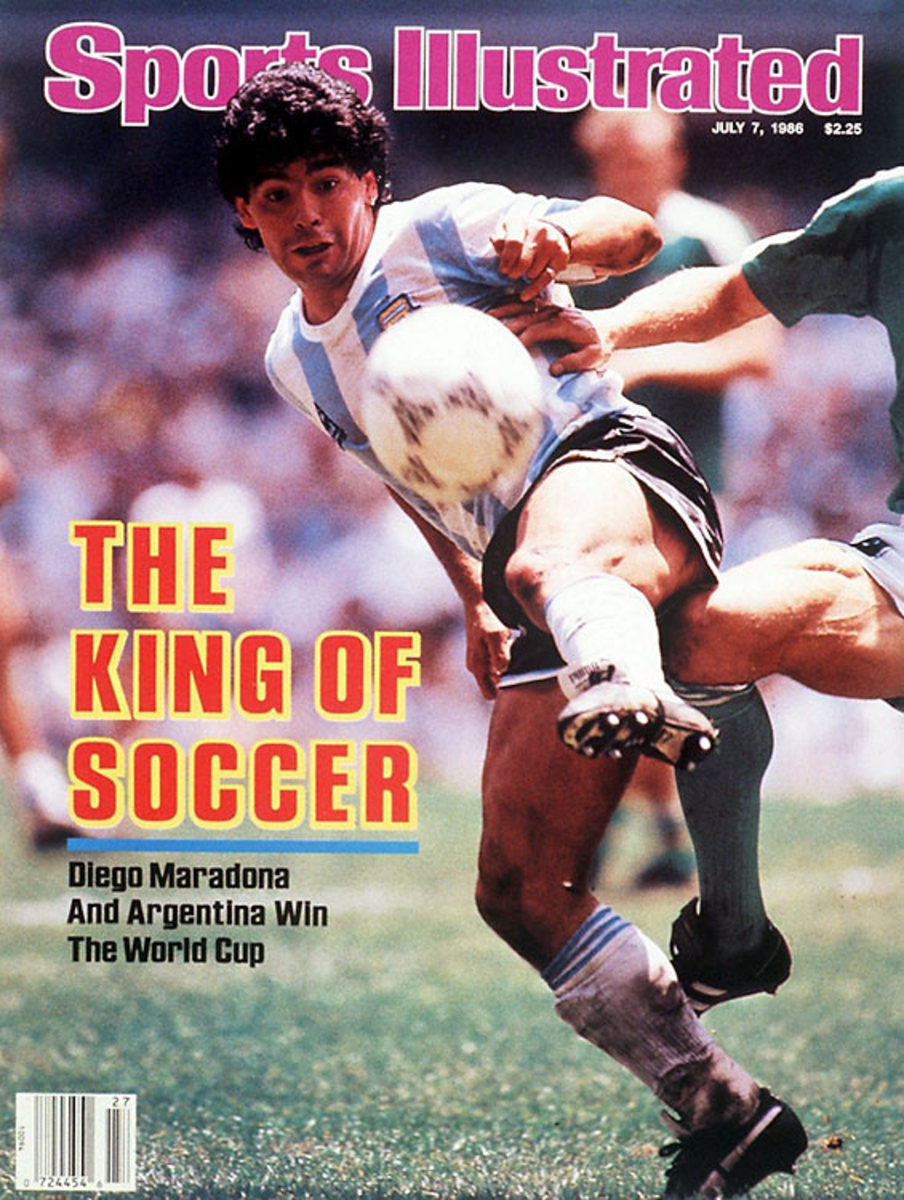
Maradona owned the 1986 finals in Mexico, playing with fearlessness and guile–and a little luck, too, as his Hand of God goal helped Argentina slip past England in the quarterfinals. His performance against Belgium in the semis (two second-half goals) was incredible, and though the Germans kept him quiet for most of the final, it was his cross that set up Jorge Barruchaga for the winner.
1990: West Germany
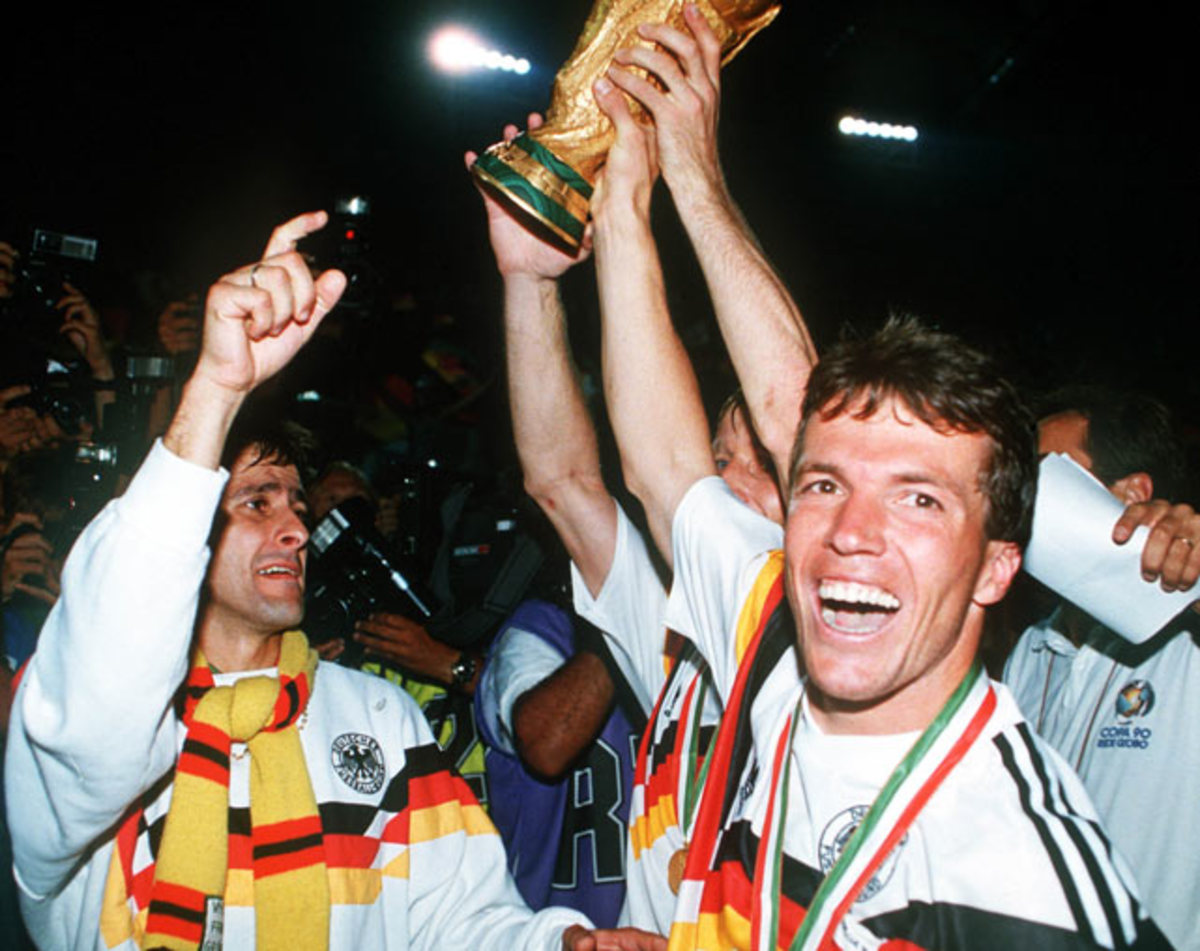
In a rematch of the '86 final, West Germany got the best of Argentina 1-0 in a physical match (an appropriate finish to a rough-and-tumble tournament short on goals) in Italy.
1994: Brazil
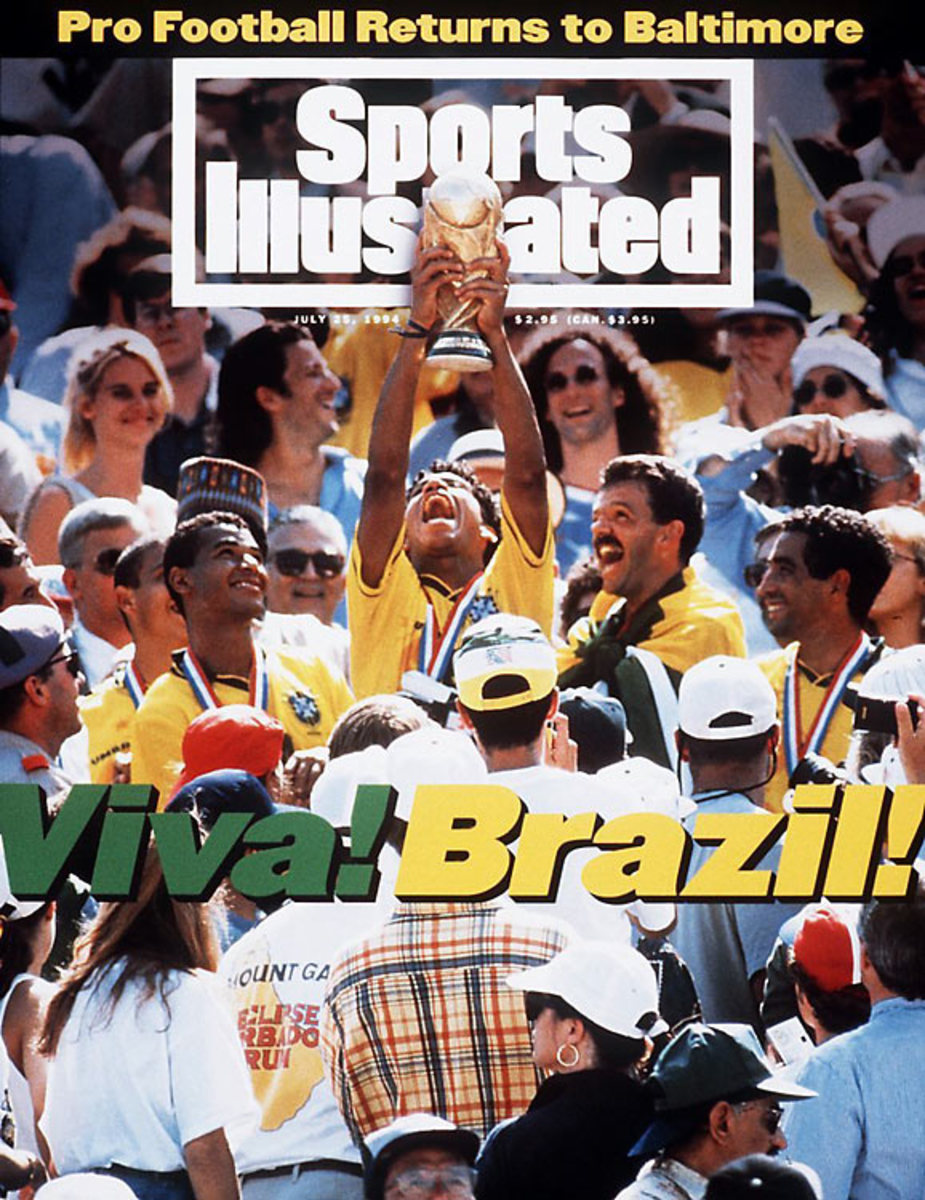
Brazil and Italy played a mediocre final in the first tournament hosted by the United States, with the Brazilians winning in a penalty shootout after a 0-0 finish following extra time. Brazil became the World Cup's first four-time winner.
1998: France
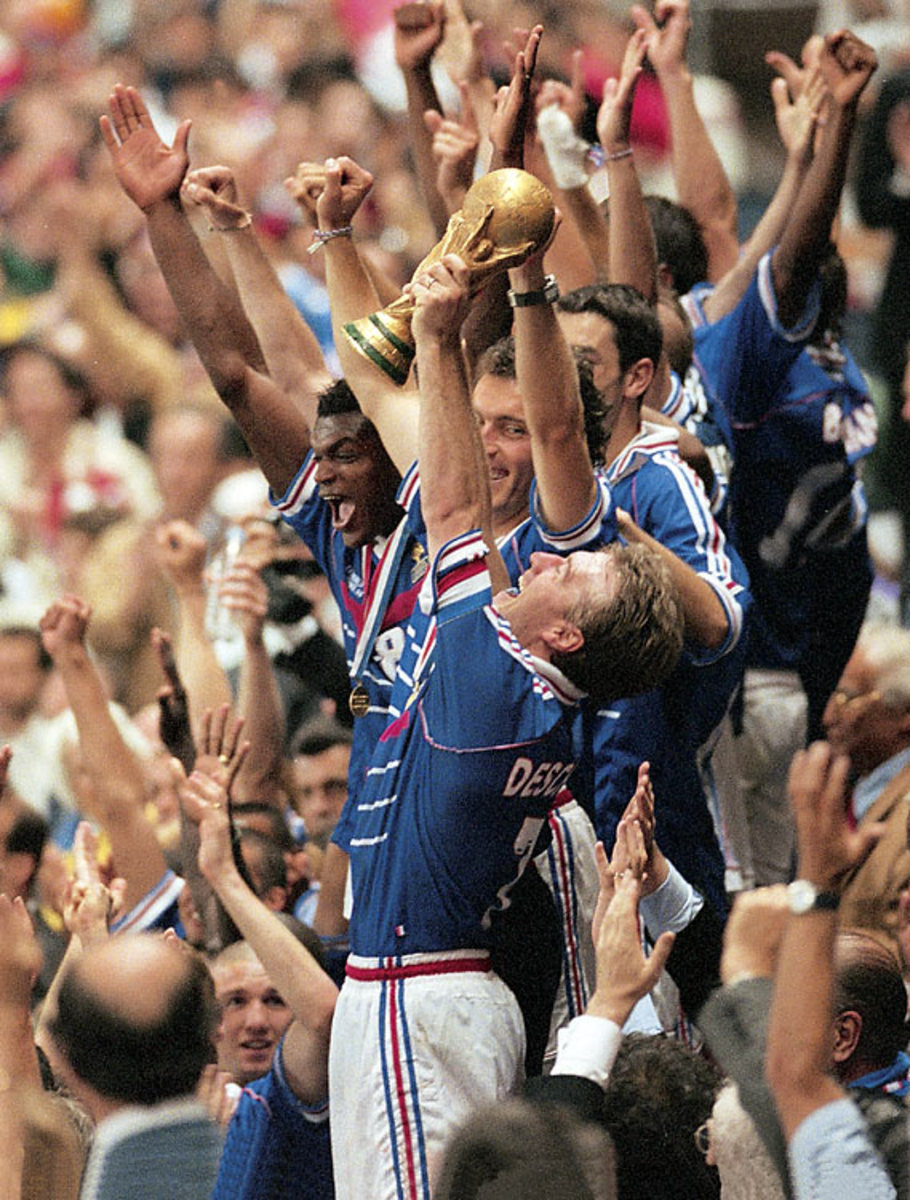
France came back from a goal down against Croatia in the semifinal to set up its first final appearance, against Brazil. Rumors abounded that Ronaldo suffered a fit immediately before the match, but host France deserved its win after completely dominating the match thanks to two first-half headers from Zinedine Zidane.
2002: Brazil
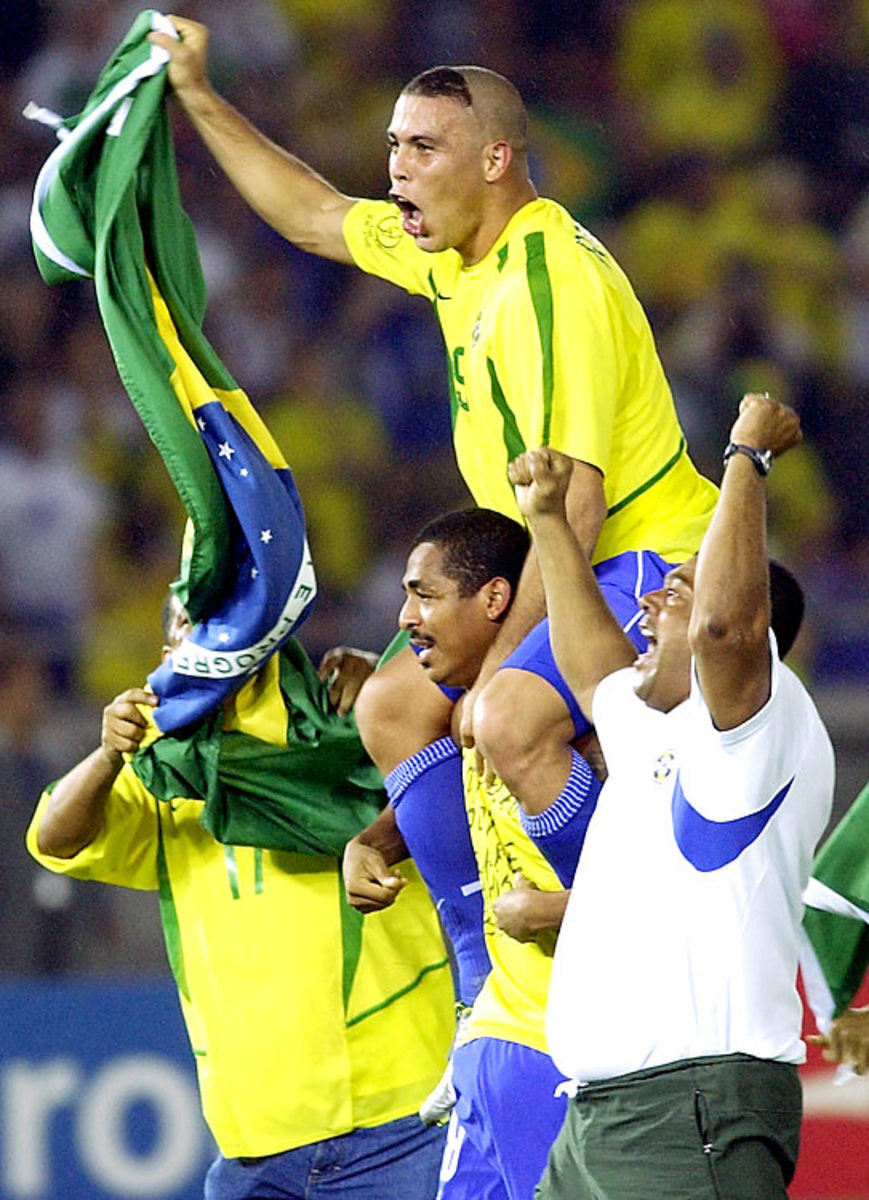
Japan and South Korea became the World Cup's first co-hosts, and the first in Asia, and they produced a tournament full of surprises, if not amazing soccer from the usual suspects. The unexpected success of newcomer Senegal, as well as Turkey, the United States and South Korea, added to the novelty of the event. In the end, though, the final was contested between old faces Brazil and Germany, despite the relative weakness of their lineups. Ronaldo scored both goals in Brazil's 2-0 victory.
2006: Italy
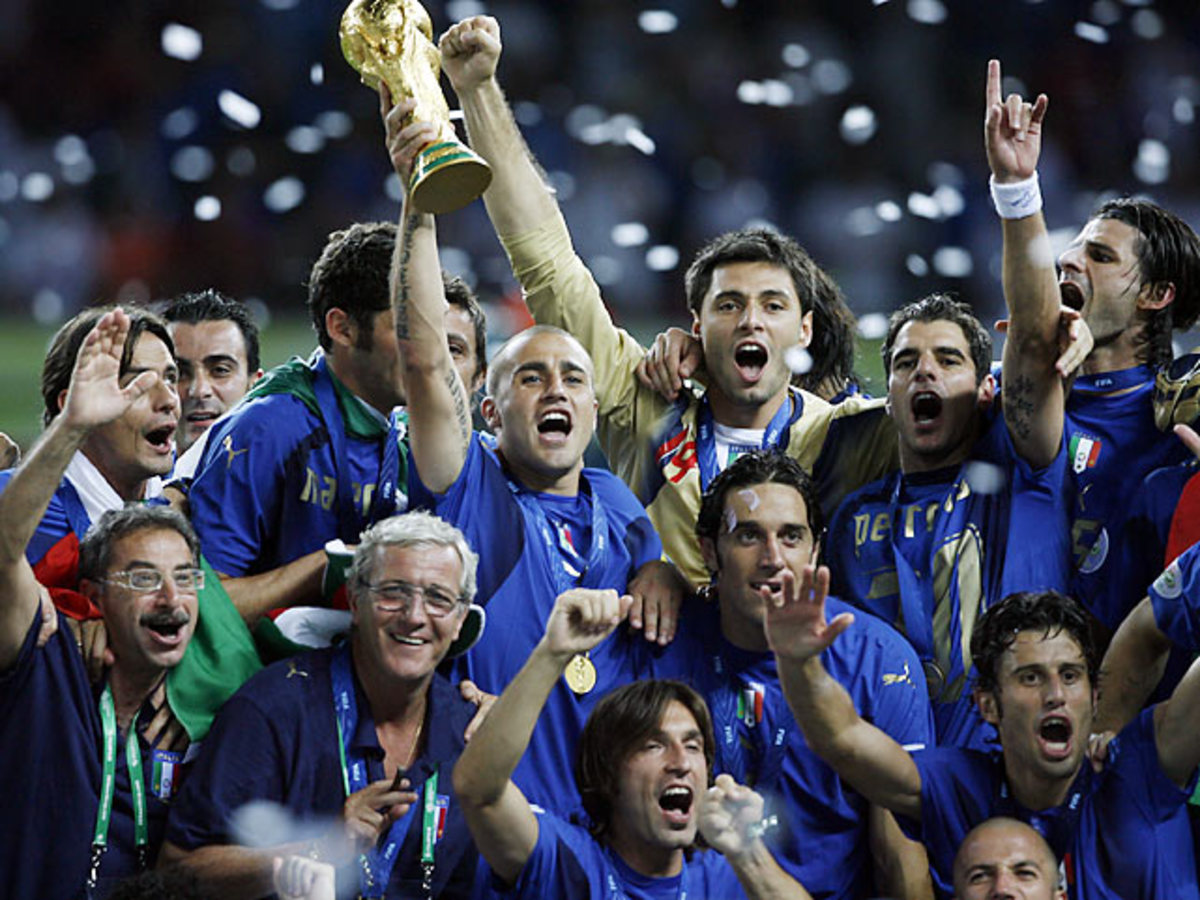
Italy went unbeaten in the group stages and was then inconsistent through the knockouts, but deservedly took an extra-time victory over host Germany in the semis before beating France on penalties in the final. The French had started to dominate into extra time, but Zinedane Zidane's headbutt on Marco Materazzi left it a man down, and David Trezeguet's missed penalty handed Italy a fourth World Cup.
2010: Spain
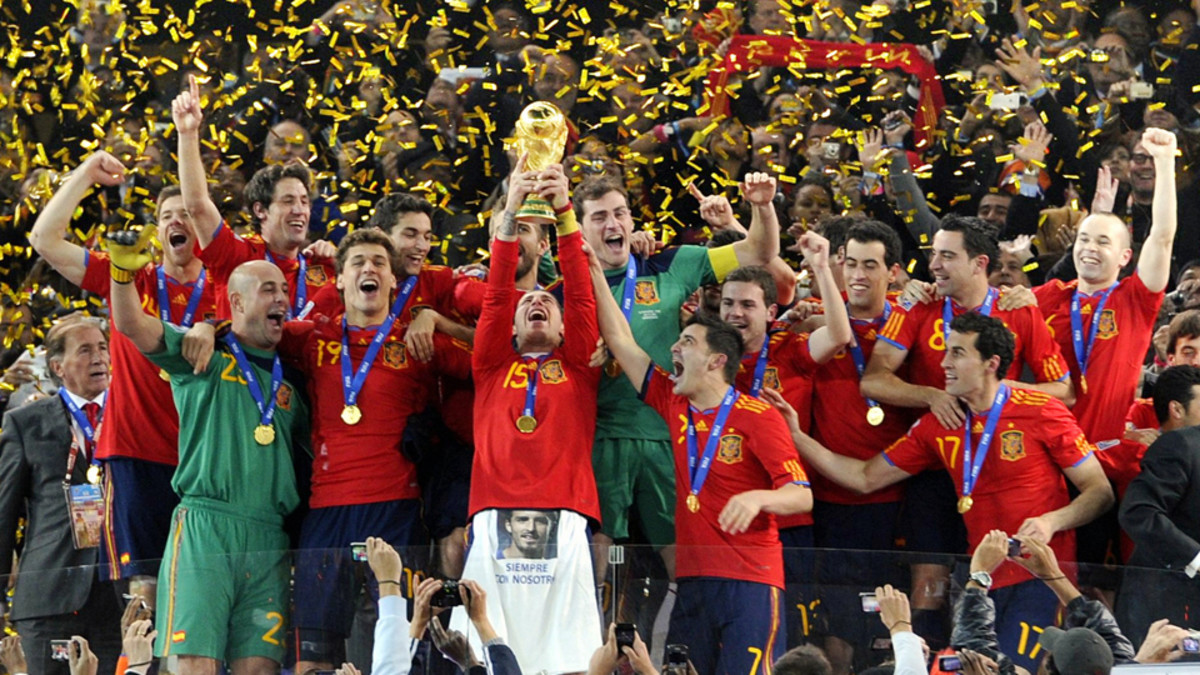
Spain capped its golden era with a World Cup triumph, following its Euro 2008 title with another on the grand stage. Andres Iniesta's goal in extra time of a physical final led Spain over the Netherlands and allowed La Furia Roja to lift the trophy.
2014: Germany
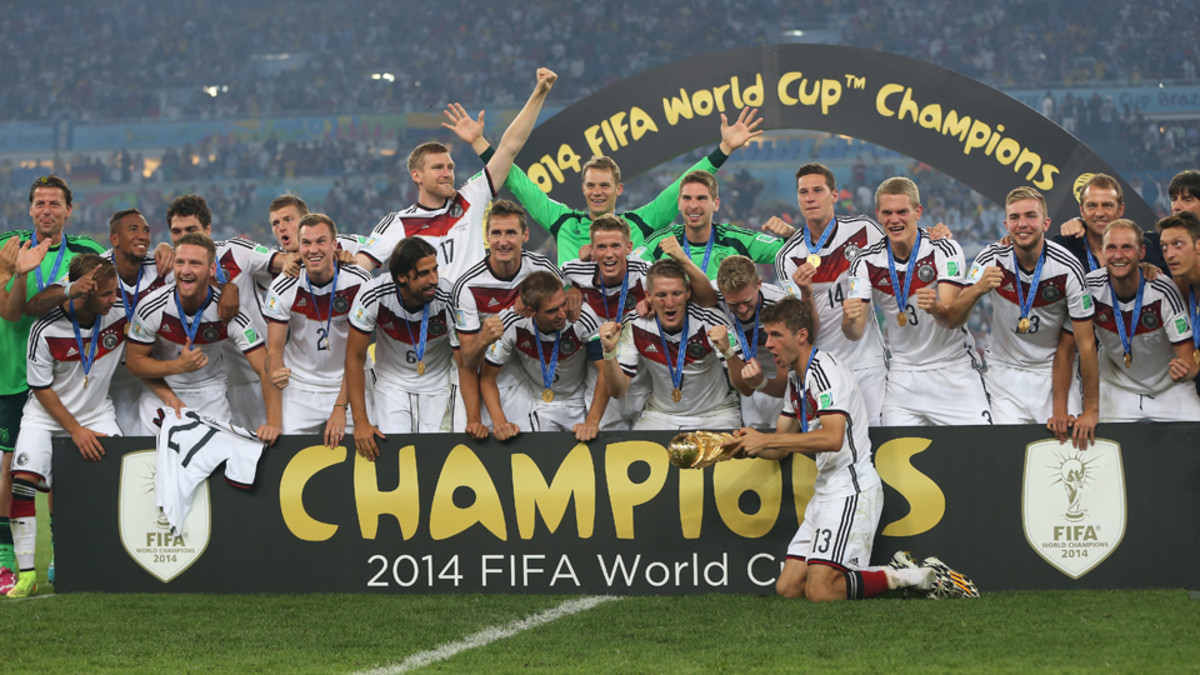
Germany's run concluded with an extra-time triumph over Lionel Messi's Argentina, with Mario Gotze supplying a sensational winner to crown the Germans once again.
• World Cup qualifying becomes a joke. Let’s say eight CONCACAF teams end up qualifying for World Cup 2026, with the U.S., the current favorite, as the host. The top eight CONCACAF teams in the current FIFA rankings are Costa Rica, Mexico, the U.S., Panama, Haiti, Honduras, Curaçao and Jamaica. With CONCACAF promising more qualifying games to tiny island nations, look for World Cup qualifying to become a watered-down mess of easy games with next to nothing at stake for a team like the U.S. or Mexico. One of the U.S.’s biggest current problems is it doesn’t play enough games that matter against tough opponents. This system makes that problem even worse.
The club game is already being played at a much higher level than the international game. An expanded World Cup makes that worse, both during the long time period between World Cups and at the 48-team World Cup itself.
• If you’re FIFA, which has money concerns in the wake of the U.S.-investigated FIFA scandal, you’ll make more money off TV rights (more games!) and sponsorships. And if you’re Gianni Infantino, the recently elected FIFA president, you’ll increase your chances of being reelected, since so many more countries will have an opportunity to reach the World Cup. Each of those countries has a vote in the FIFA election. This is patronage politics straight out of the Sepp Blatter handbook, and it goes along with the massive increase in annual money grants that Infantino promised and got passed for each FIFA nation.
Growth and making money aren’t necessarily bad things, but the biggest problem that Infantino needs to fix is FIFA and confederation corruption—remember, there was a giant FIFA scandal!—and not the size of the World Cup, where 32 teams was just about perfect. Simply following the Blatter patronage blueprint and raising payouts only increases suspicions that the same shady folks at the end of those handouts (and most of them are the same people that there were there during the FIFA scandal) will continue with business as usual.
Roundtable: What's the best format for an expanded World Cup?
My hope is that Infantino will use the political support he gains from pushing expansion to address the biggest issues facing FIFA, which include becoming a cleaner organization and building women’s soccer and the role of women in soccer globally. My fear is that he will think his work was done in those areas with the passage of last year’s FIFA reform package, which should be just a start.
How would I have changed the men’s World Cup? Instead of expanding it to 48 teams, I would have kept it at 32 and instituted more intercontinental playoffs to give more teams outside of Europe and South America a chance to make the 32-team field. And if the 32-team field absolutely had to be expanded, I would have gone ahead and increased it to 64, which at least is a number that makes for a competitively smart tournament. We’re probably headed for 64 eventually, anyway.
But here we are. A 48-team World Cup is now official, and I worry they have ruined the showpiece event of the world’s greatest sport.
